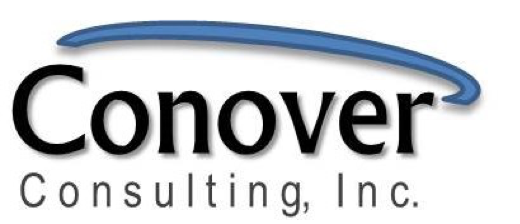Why Hiring Right is Essential to Building Your Best Company Culture
We can write all the mission documents, vision statements, and operations manuals we want as company leaders, but any corporate culture ultimately will be determined by the people who comprise it. For example, if your organization’s workforce, from the C Suite on down, embodies complementary values, beliefs, outlooks, and temperaments, you’re likely to find the road to prosperity far smoother than if your staff is a chaotic amalgam of disparate philosophies, ethics, and ambitions.
Writing in the Harvard Business Review, Katie Bouton, president and founder of Koya Leadership Partners, puts it this way: “Culture fit is the glue that holds an organization together.” She notes, “The result of poor culture fit due to turnover can cost an organization between 50-60% of the person’s annual salary.”
To Bouton’s point, this is why hiring based on personality and character, not just skills, can spell the difference between success and failure in business. Of course, the very idea of personality/character-based hiring might seem incongruous to anyone accustomed to seeing the world via purely objective lenses. After all, classic business theory, still supported by institutions like the U.S. Bureau of Labor Statistics, suggests someone with 10 years of experience doing X will probably make a better hire than someone with only five, and that someone with an MBA possesses greater leadership potential than someone with a mere bachelor’s degree.
However, real-world experience tells a different story. As discovered by Professor Chad A. Van Iddekinge and his colleagues at Florida State University, there is no correlation between job experience and a new hire’s eventual success. A highly skilled, seasoned candidate with an Ivy League degree and a killer resume can prove to be a disaster if the person is also arrogant, stubborn, and concerned only with professional advancement. Conversely, someone who has a passion for what a company does and can’t resist evangelizing its products or services may very well end up making an excellent manager—even if this individual’s education, experience, and professional skill set are less than sterling.
When hiring based on character and personality, just what are we talking about? In essence, we mean hiring leaders and staff based on compatible values, desires, goals, and sensibilities. Not identical values, desires, goals, and sensibilities, mind you, but compatible ones. Great companies aren’t crewed by clones, but by a diverse set of individuals whose outlooks, behaviors, and skill sets nonetheless complement one another.
In this way, hiring is, as noted by Forbes contributor, executive search executive Jeff Hyman, akin to romantic courtship. When seeking a permanent mate, it’s important to look beyond superficial considerations like attraction and annual income to explore more fundamental questions like, Where do we want to live? Do we want to have children? How much do we value fidelity? Religion? Do we like to eat the same foods? Laugh at same jokes? Likewise, when considering a job candidate, we must look beyond the dry resume and determine if the candidate shares company values in areas like innovation vs. traditional thinking, individual effort vs. teamwork, company profits vs. stakeholder satisfaction, environmental stewardship, community investments, volunteerism, and other issues central to company culture.
Now, for those who still think personality doesn’t impact performance, just consider how a skilled AI engineer who likes rock climbing, adheres to a strict vegan diet, drives a Tesla, and listens to 1970s rock music is likely to fare at Apple versus IBM. One sounds like a match made the heaven, the other a highway to hell. So, how can you recruit employees with outlooks similar to yours? Proven tactics include:
Devoting a page on your company website to a clear articulation of your company’s values and corporate culture. (Make sure candidates can easily discover who and what you’re all about.)
Providing similar information in all your job postings. (List not only the skills and experience you seek, but also the beliefs, values, and temperament the ideal candidate should bring to the company.)
In interviews, going beyond questions about education and job experience to explore other aspects of the candidate’s life, such as hobbies, favorite vacation spots, and volunteer activities. You can often learn more about a person by asking, “What are your five favorite movies?” than chestnuts like “What is your greatest weakness?” or “Where do you see yourself in five years?” (Note: When delving into personal information, avoid questions about hot-button issues like politics, religion, marital status, and sexual orientation. Raising such issues could open you up for a lawsuit.)
Inviting job candidates to take recognized personality and preferred behaviors tests. These are used by thousands of businesses to assess job candidates and employees to determine if they would be a good fit for a particular organization.
*****
As a corporate culture specialist and consultant with decades of experience in leadership and compensation, I specialize in helping clients “get under the hood” when evaluating candidates to see what makes them tick. In today’s chaotic job market, it’s critical you properly judge each applicant on what really counts, lest you hire employees who hinder, rather than help, your company’s progress. To see if I am a good fit for your organization, please contact me at laura@conoverconsulting.com.
